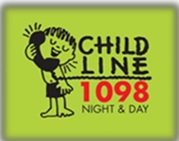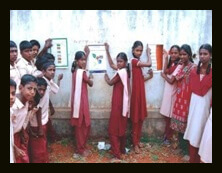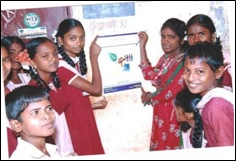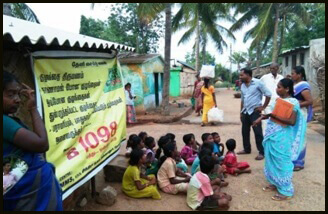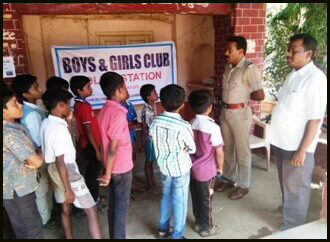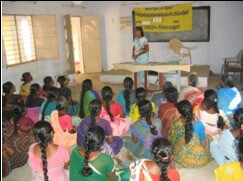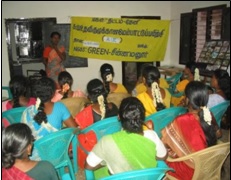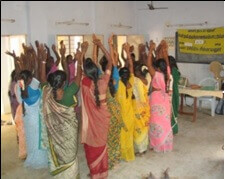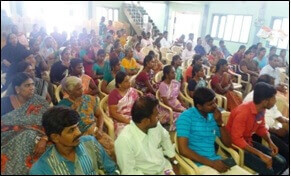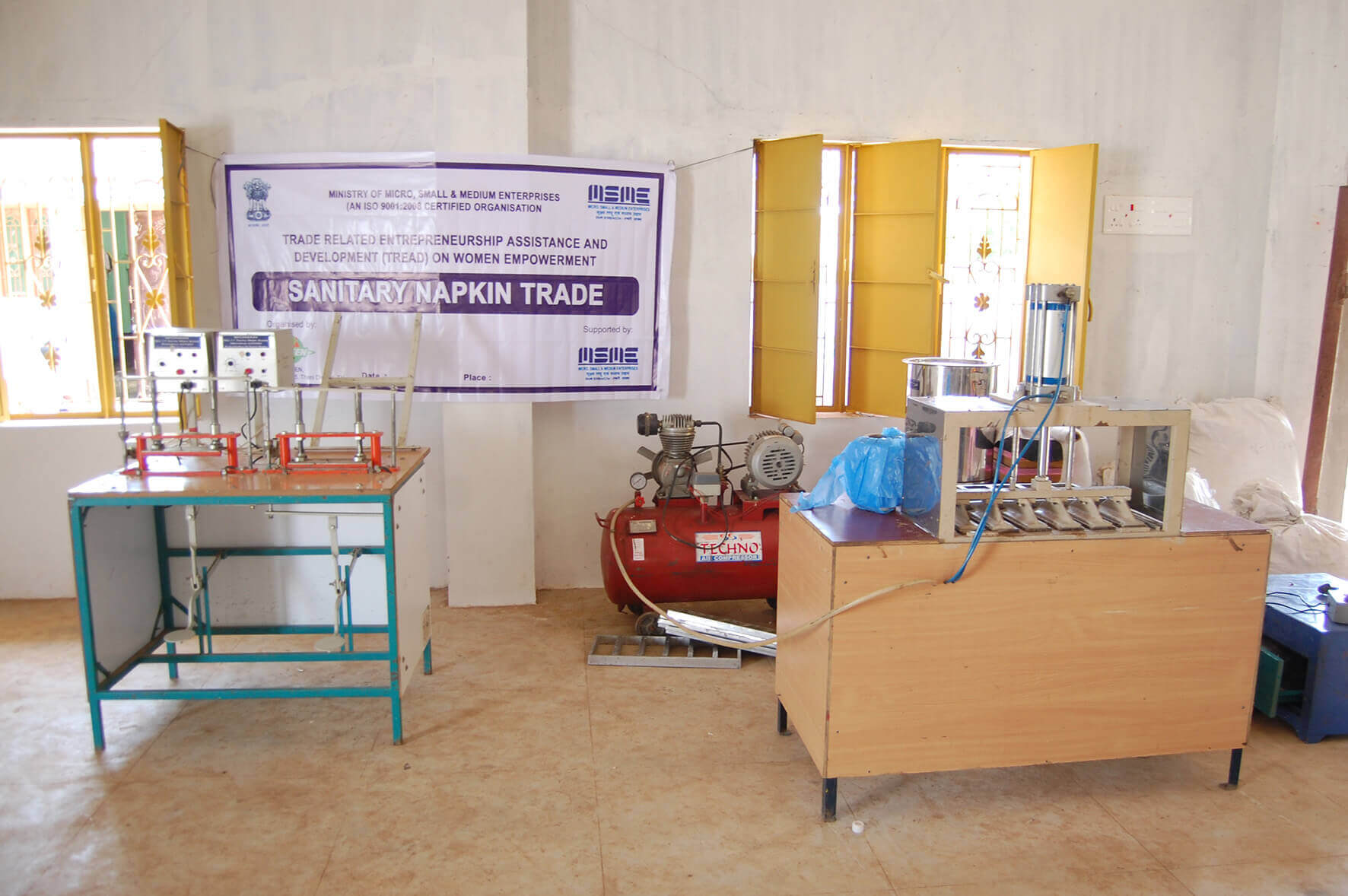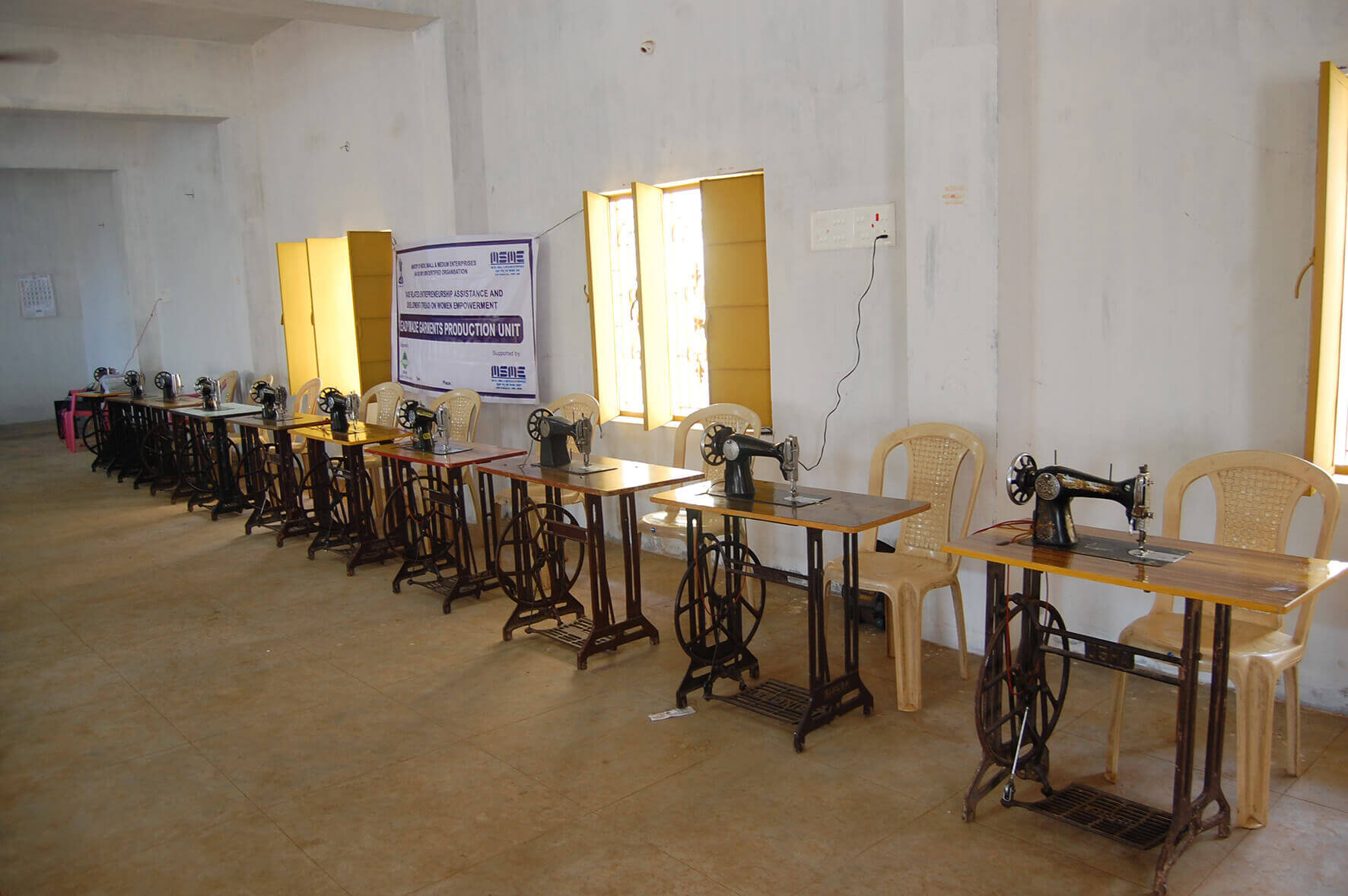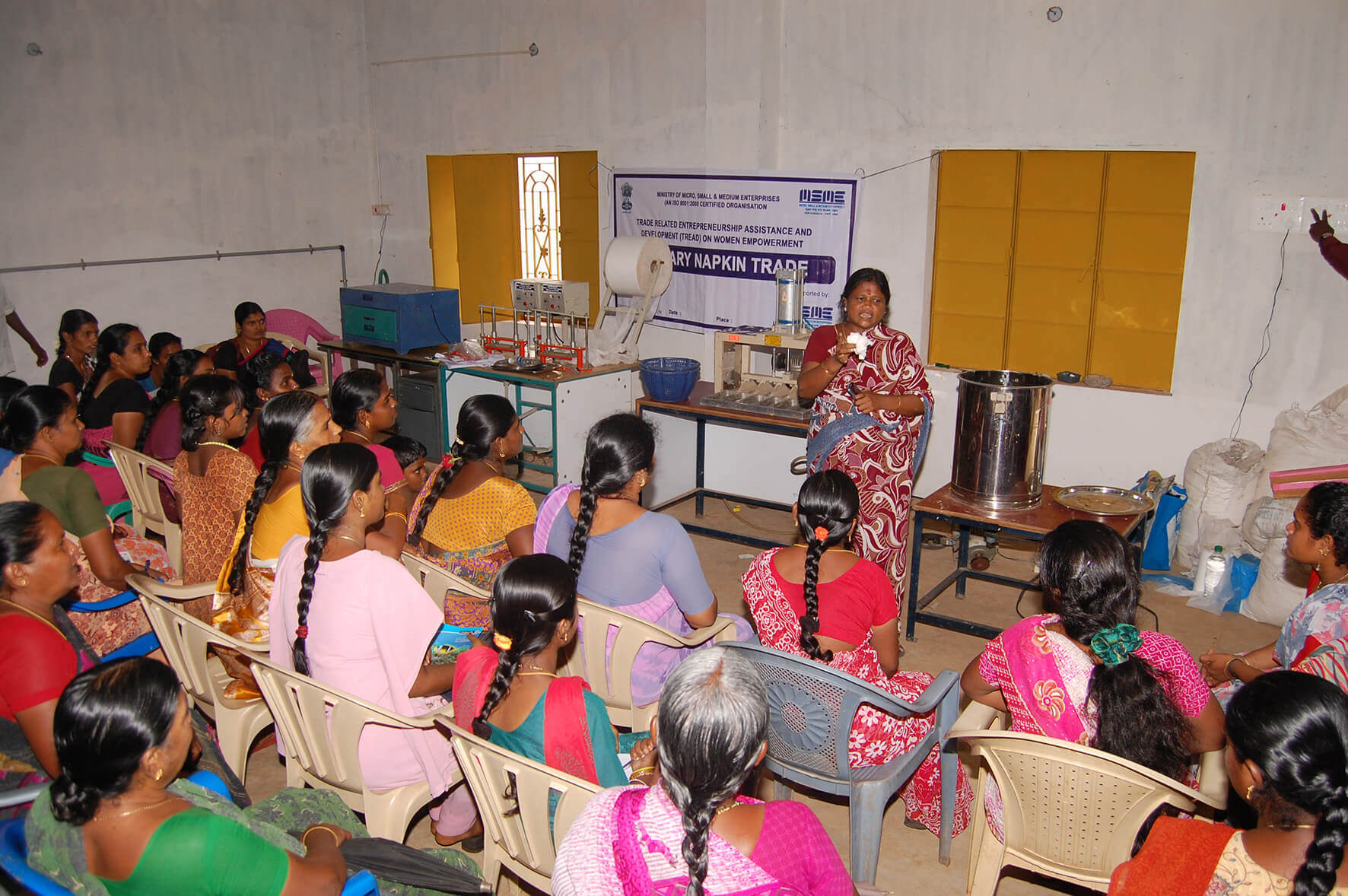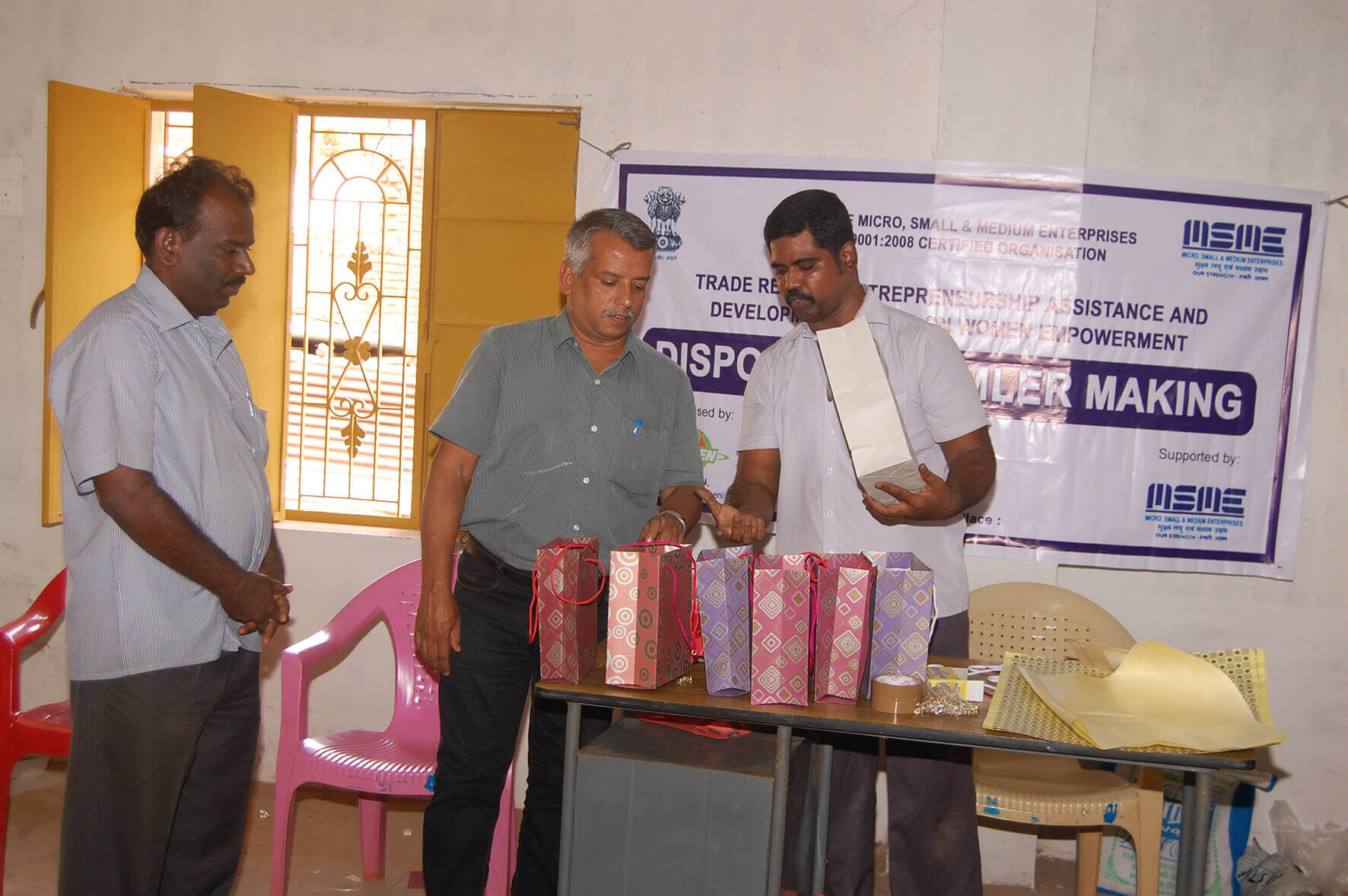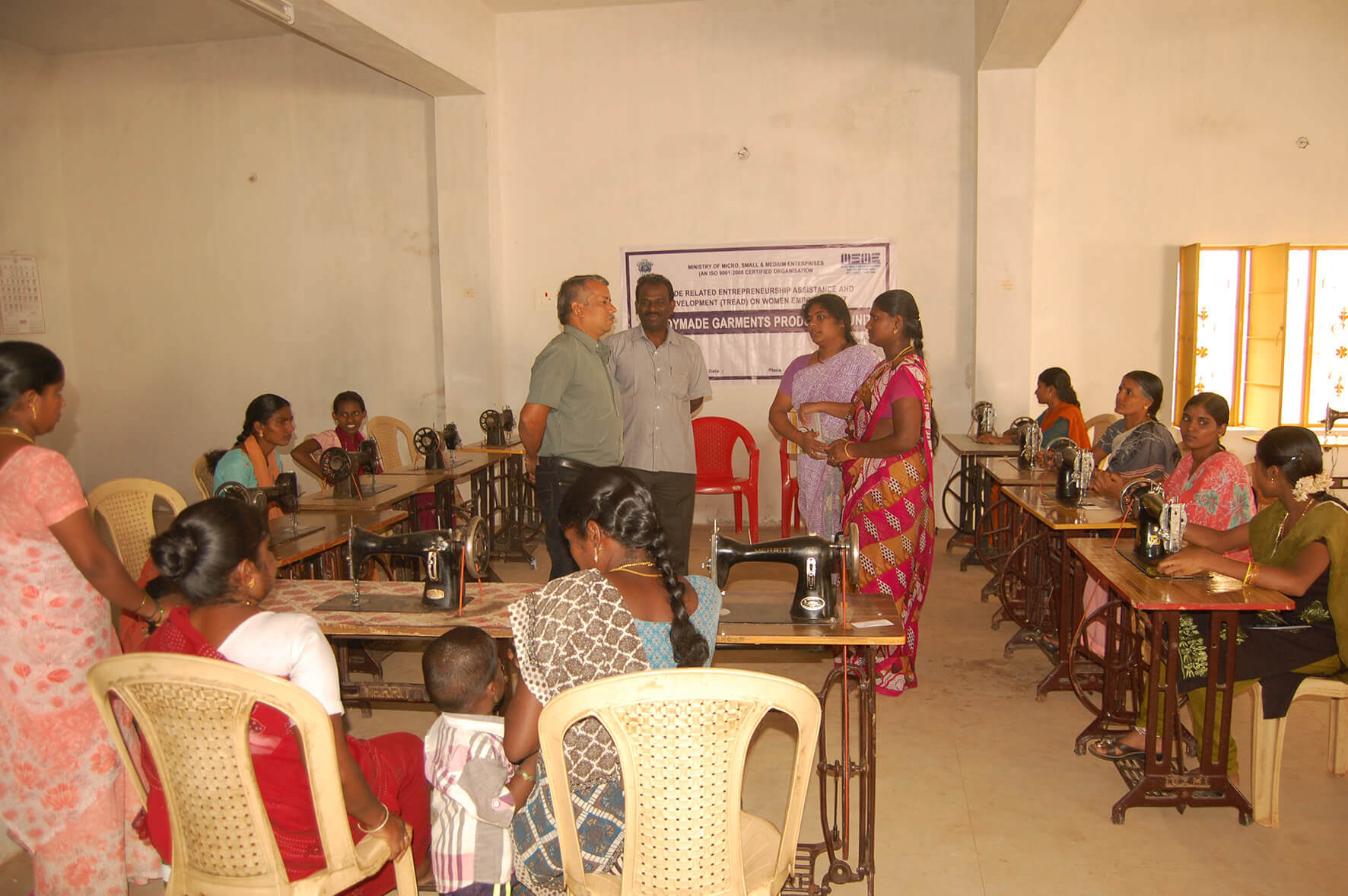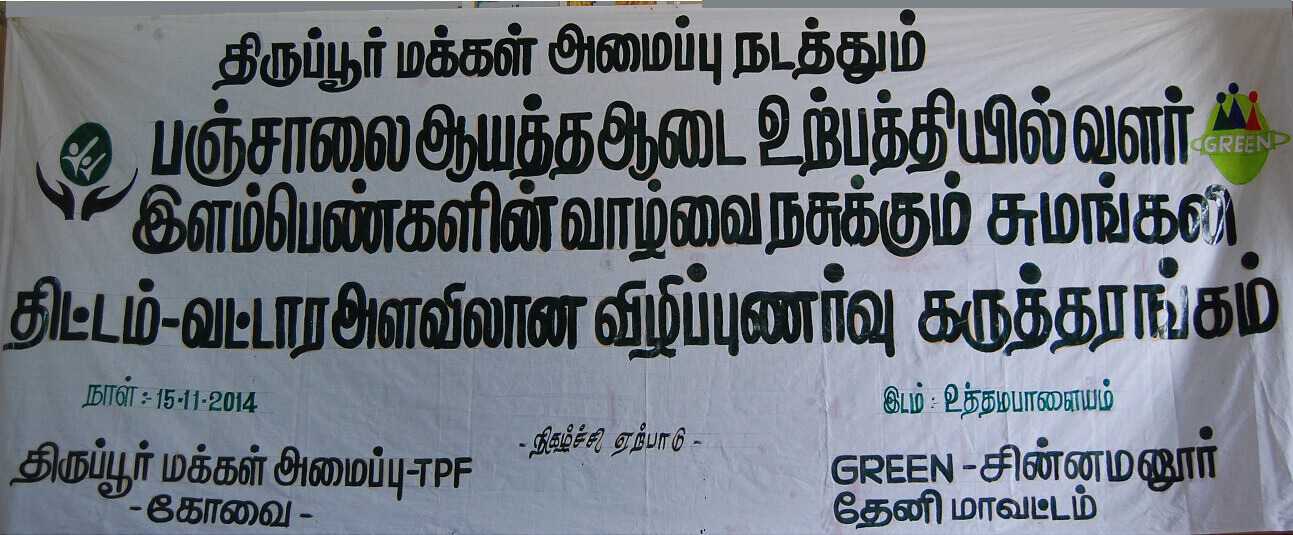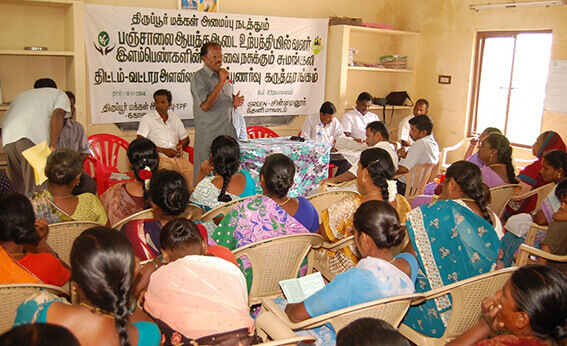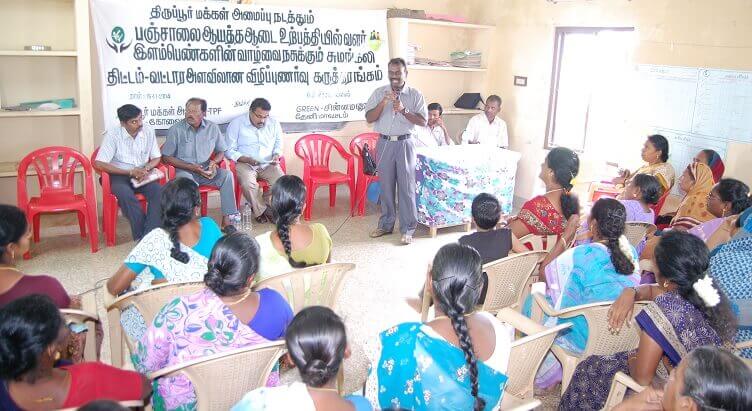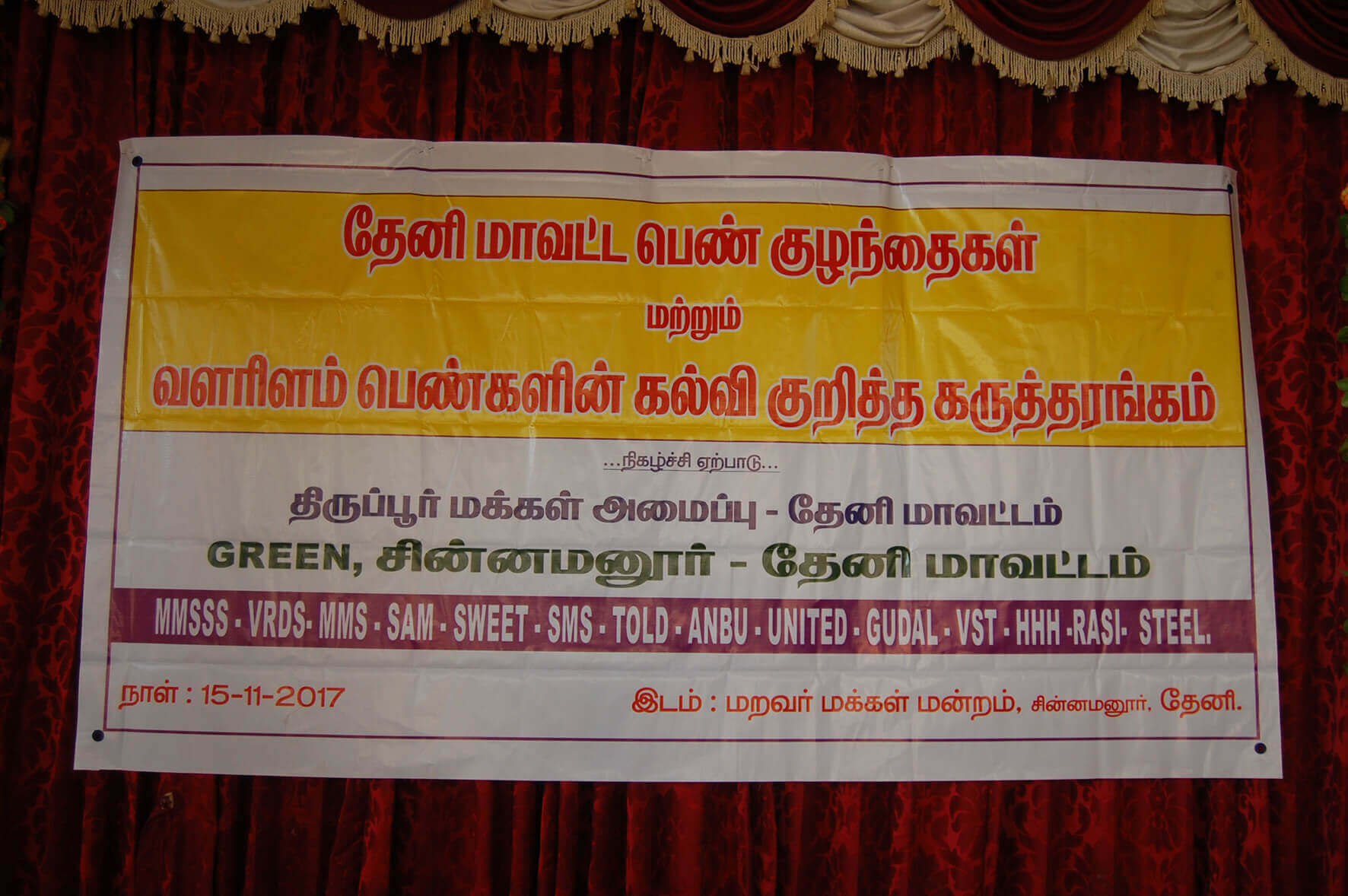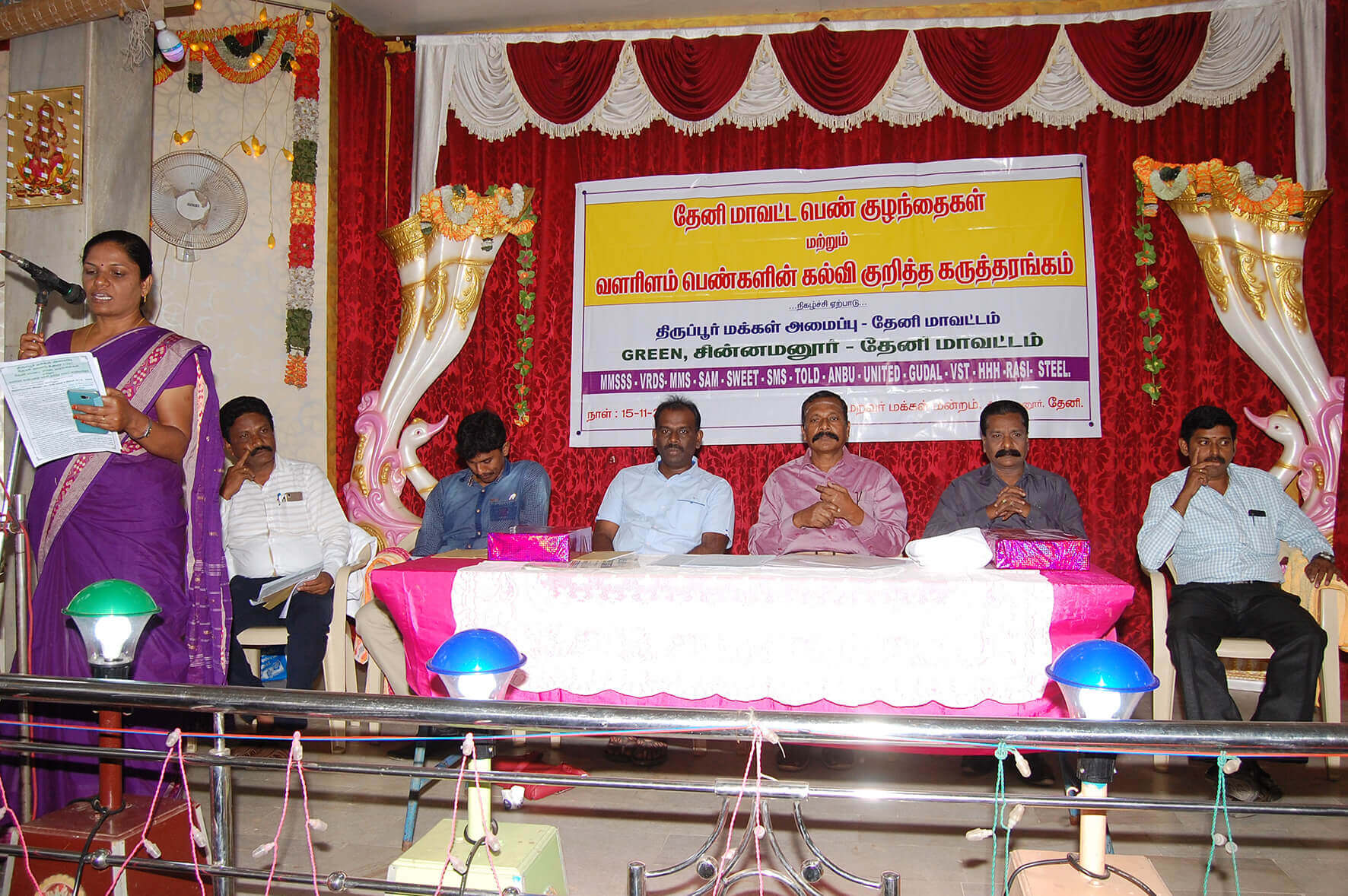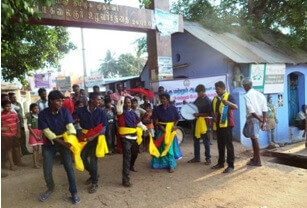Programs
Child Development
TN Forces:
GREEN is in the forefront in protecting and promoting child rights, child participation and child protection among children and primary stakeholders. It works in close collaboration with TN Forces, Chennai.
GREEN organises campaign activities promoting the importance of adhering to Child Rights among the public. The campaign activity mainly focuses on Right to Survival, Right to Protection, right to Participation and Right to Development of every child.
The campaigns also focus on giving policy level framework at the national and state levels by enacting suitable laws. The campaigns include interactions with political parties through advocacy to give legitimacy to child rights through Acts of Parliament.
GREEN works with TN-Forces and neighbouring organisations to materialise the dream of a world fit for children.
Free Study Materials to Pupils:
GREEN is of the firm view that education is one of the primary sectors that help children to come up well in their living standards. Hence, we provide educational assistance in the form of educational materials / teaching aids and free note books to children of 8-11 yrs old hailing from poor families.
The money for this program is mobilized from the public and well-wishers of GREEN. Every year, over 50 students from poor and disadvantaged community in the working area and nearby urban areas are benefited.
Collaborative Initiatives on CHILD HELP LINE 1098:
GREEN has initiated CHILD HELP LINE Centre In association with our neighbouring organisation. This Child Help Line Project Centre is approved and recognized by the Department of Social Defence, Government of Tamilnadu through Government of India. The main purpose of this CHILD HELP LINE 1098 Project is to extend care and support services to the children in distressful situations. It provides counselling, care and emotional support to them. It provides immediate care to Child Labours, Street Children who are identified in the working area.
It is a 24 x 7 dial up with a toll free telephone number of 1098 for receiving calls from any area of the district and GREEN will send its field staffs to give support service to such affected children within Theni district.
Boys & Girls Clubs:
In continuation of promoting child-centred initiatives GREEN involved in a special program initiative in association with District Police Department, Theni District. Under this program, Boys & Girls Clubs within the age group of 8yrs to 15 are organized within Chinnamanur Police Station limits.
These Boys and Girls Club members also involve in sports activities, Yoga and Meditation, development of soft skills, recreation and motivation classes. The purpose of this Clubs is to enhance the friendly rapport between Police personal and children with a social welfare perspective.
The Sub Inspector of Police, Chinnamanur Police Station, often visits these Clubs and gives guest lectures on various functions of Policemen, maintaining law and order and how public and children can help them to keep the area from crimes. Further he also dwells on the subjects of Child Rights, Child Help Line 1098 and how to approach Police Stations for crimes related to children.
GREEN supports this initiative by inviting Resource Persons from different fields, organising various events on behalf of Boys & Girls Clubs and meeting their program costs.
Youth Development
The Situation:
Textile and clothing Industry, after agriculture, is the second largest sector in the Indian economy providing direct employment to over 35 million people. It also generates output, foreign exchange earnings and indirect employment to many. In Tamilnadu, Karur, Erode, Dindigul, Tirupur and Coimbatore districts have long been the centre of a textile and garment industry. Tirupur is declared as a City Corporation from being just a municipality town, because of its demographic and geographical growth.
The Textile Industry in Tamil Nadu particularly Tirupur has been reported to be exploiting young women workers in the spinning and textile units under what is called the Sumangali Scheme. Sumangali in Tamil means happily married woman, an auspicious future that all parents wish for their young unmarried daughters. Spinners and garment manufacturers alleged to be exploiting young women workers under the Sumangali Scheme. In Tirupur alone around 33,000 girls are employed in the two blocks of Tirupur and Avinasi.
Adolescent girls from very poor families are targeted by textile factories and commercial establishments throughout Tamilnadu and elsewhere too under this Scheme. There are self-appointed brokers spread over every nook and corner of Tamilnadu who lure families of adolescent girls with false promises of assured employment, regular income and lump sum payment for their marriage. Such brokers earn sizable commissions as income for recruiting adolescent girls from poor families.
Drought, poor living conditions, low wages, constant exploitation and harassment by moneylenders and upper caste landlords compel poor girls and women to get recruited in the Sumangali Scheme. Most women get attracted to the scheme's promise that a lump sum payment between INR 30,000 and INR. 50,000 would be paid at the end of the three-year contract period, which would help them to pay the dowry during their marriage.
It has been estimated that 120,000 young women workers have been currently employed as apprentices under the scheme. Sumangali workers mostly come from Dalit and tribal communities whose parents work as agricultural labourers, construction workers, sweepers and cleaners. Nearly 60% of the Sumangali workers belong to Scheduled Castes and Scheduled Tribes the so-called untouchables. Adolescent girls from most backward and backward communities too are the victims of this scheme.
Problems Faced:
The adolescent girls working in mills and commercial establishments faced the following problems:
Employment contract: No written contract between employers and employees in most cases
Wages and deductions: Workers are employed and retained as apprentices, and are paid mostly stipends rather than regular wages with deductions taken out for amenities. High deductions reduce monthly payment. The monthly payment comes out to be less than stipulated as per minimum wages in the spinning mills sector.
Social security benefits: PF and ESI benefits are not provided
Health & safety: No training provided to workers, hence very low awareness of health and safety issues. Instances of accidents are common.
Working hours: Normal shift up to 12 hours with additional 4 hours mostly not treated as overtime. Sometimes the working hours extend up to 15 hours with overtime of 2-3 hours.
Discrimination: Young women are mostly employed and paid less than what men are paid for same work. The employment is mainly of young women workers.
Harassment or abuse: Verbal abuse is common. Physical abuse is not very common. But there are instances of it. Sexual abuse is also reported by the workers.
Child labour: Young women workers are being employed. Many of them look like they are under16 years of age; however their employment is on the basis of health fitness certificates which mention their age as above 16. But they look much younger.
Forced labour: The employment is for a fixed number of years ranging from 1, 2 and 3 and there are some instances of wages being paid if the stipulated period is not completed. Wages are promised as lump sum at the end of the period Hence workers are in a way forced to complete that period to get lump sum wages. There are examples of extension of service for many months to make up for leave taken during 3-year period. Compulsory overtime, compulsory late night shifts, excessive working hours are other aspects which suggest the scheme has aspects of forced labour.
However, the pain they have to bear and the sacrifice they have to make is heartrending. Schemes such as these are detrimental to the development of young women and totally crippled the growth of adolescent girls. The psycho-social problems of adolescent girls engaged in this Scheme are enormous. The parents should not afford to leave their daughters to such an inhuman labour system that only exploited them to the maximum.
The Solution:
Having understood the magnitude of the problem in-depth, GREEN decided to attack the problem from its very source. The source originates from our target villages too where we work among adolescent girls. We implemented few effective interventions in collaboration with TPF, a neighbouring NGO.
Workshop on Legal Awareness about Sumangali Scheme:
GREEN organised an exclusive workshop on Sumangali Scheme. The participants were members of women SHGs and adolescent girls from villages. Some of the victims of the scheme were also present. In the group discussion, the victims shared their adverse experiences while working in textile mills. During the workshop, the women SHG members demanded an outright ban on the scheme. 165 persons from our target villages participated in the workshop. They were motivated to become a community force to protect rights of women.
Cultural Yatra and Awareness among the Public:
In order to sensitize the public on the adverse effect of the Sumangali Scheme and protection of women rights, we organised Cultural Yatra and Public Awareness Propaganda in streets and public places in our target villages in Theni district. District Collector of Theni inaugurated the Cultural Yatra and instructed Police to provide necessary protection to the Yatra and subsequent events.
A special trained troupe of Theatre Artists performed street theatre performances in road sides for a week. They covered an additional ten places during their stay. We also distributed handbills and bit notices during Cultural Yatra to create awareness on the ill-effects of Sumangali Scheme. GREEN put up posters in 5 places in the district highlighting the adverse effect of Sumangali Scheme.
Peer Education:
GREEN provided emotional support and family counseling to the victims of the Sumangali Scheme. We organized Peer Education program among the victims to help them to find alternative livelihoods and to get out of the adverse impact of the scheme on their lives.
Women Empowerment
SHG Formation:
Women constitute half the population. Development cannot be holistic unless better half of our population is involved. In patriarchal societies like ours, women are exploited and victimised and become weaker sections. They are denied rights to education, freedom of speech, ownership titles over properties and resources and are being kept as private properties of men.
In such a situation of gender inequality, GREEN considered women as the primary stakeholders. GREEN has started facilitating formation of Self Hep Groups, SHGs, among poor rural women since its inception.
The members of these SHGs come together every week and discuss together on issues that affect them most. They arrive at decisions collectively on consensus basis and execute them together involving their communities addressing and in the process solving problems facing their own survival. They also involve in obtaining various welfare measures, including schemes and services, offered by public and private agencies. During their regular meetings, they involve in action-reflection processes to learn from their expreiences and to take up corrective follow-up measures.
Each SHG is mainatining registers and books of accounts within the defined procedures and rules and regulations. These SHGs have mobilised savings and lent internal credit within themselves at reasonable rates of interest.
GREEN focused on helping them to acquire employable skills, build capacities, develop self-esteem, access information and resources and promote unity and involve in collective actions to address gender-centric issues. Our double-edged approach of socio-economic empowerment processes impacted changes in terms of enabling women to become leaders at the grassroots and decision-makers at the households.
Rural women are at present involved in savings, internal credit, linkages with banks, mobilisation of external loans, developing financial literacy, skills acquisition and investing in income-generating activities.
Capacity Building:
With intensive capacity building programs, GREEN was able to facilitate women to understand group dynamics. These programs have enhanced their leadership and communication skills and also their bargaining capacities. Most SHGs are capable of organising events. They have started their own income generation units.
The training programs, as part of capacity building, provide them with information and knowledge about how to assess their performances, activities and loan repayment capacities. Such programs also motivated and involved SHG women members on local issues and problems.
The members are also able to manage their stresses and strains. They also involve in conflict resolutions within families, groups and communities. Capacity building programs enabled them to understand and realise their strength of unity and integrity. This resulted in creating cohesiveness and broad-base their support among themselves.
GREEN has facilitated the formation three more women groups in its areas of involvement at village level. They are:
- Cleanliness Groups
- Health Groups
- Leadership Development Groups
These groups involve collectively in kicking off community development initiatives. The Cleanliness Groups at the village level have the responsibilities of keeping their villages clean and green. The Health Groups bear the responsibility of monitoring the Water, Sanitation and Hygiene (WASH) aspects of village life. The Leadership Development Groups involve in identifying and developing leadership traits and communication skills among local women leaders.
Setting Goals for the Future:
Each SHG is functioning within the following set of goals to make every SHG as an independent unit and as an inter-dependent body as well.
- A common vision, identity and ownership
- Health Groups
- Leadership Development Groups
- Dynamic and active membership and leadership
- Formalization of meetings
- Communication for community change
- Group management skills
- Raising funds for community projects
- Open, efficient management of funds
- Planning community projects
- Reflecting, Monitoring and Evaluating
- Lobbying and advocacy
- Working with other NGOs and networks
- Supporting Child Rights and Human Rights
Microcredit
Indebtedness:
Nearly eighty percent of our population in our project area live in villages. Among them, nearly seventy percent depend on agriculture for their daily bread. Due to capricious rainfalls, vast majority of cultivable lands remain drought-prone most part of the year. Hence vast majority of rural people remain unemployed and under-employed throughout the year. Inadequate alternative income-generating opportunities in these areas is one of the major causes for widespread poverty.
Poor womenfolk approach local moneylenders for emergency loans to meet their immediate consumption needs and social obligations. These moneylenders charged interests ranging from thirty-six percent to hundered percent. In such situations, poor women become more vulnerable to the whims and fancies of unscrupulous usurers .
Migration:
Unable to meet both ends in life, men from poor families migrate to other places. Here again women and children are the victims. In our project area, migration is taking place at two different levels. Poor landless agricultural women labourers migrate on daily basis to work in Estates located in Western Ghats of Kerala State. Men migrate to cities in search of employment opportunities.
Micro Entrepreneurs:
So as to address the problems of unemployment, under-employment, indebtedness and lack of alternate livelihood options, GREEN initiated a program called Micro Entrepreneurship Development Program aiming at reducing the negative impact of poverty in the areas of our involvement. Under this program, GREEN has been targeting the rural poor, specifically women from disadvantaged communities, by promoting off-farm employment opportunities. GREEN approached ICICI Bank and ANTENNA Financial Services for financial assistance. Both came forward and are supporting us in our endeavours. The following tables explain our present position in this respect.
Table - 1:
Micro Credit Mobilised
| S. No. | Financial Assistance | Amount | SHGs Supported | Purpose |
|---|---|---|---|---|
| 01 | ICICI Bank | 1100,00,000 | 336 | Economic assistance and business promotion activities |
| 02 | Antenna Servicesk | 100,00,000 | 85 | Small Credit Intervention and Livelihood Sustenance |
| 03 | TREAD | 49,80,000 | 665 | Trade based Skill Development on Garments, Textiles, Soap making & Sanitary napkins making and others |
| S. No. | Purpose of loan | No. of women beneficiaries |
|---|---|---|
| 01 | Micro Enterprises Development | 4,099 |
| 02 | Agriculture | 1,422 |
| 03 | Personal consumption | 900 |
| 04 | Education | 167 |
| 05 | Assests creation | 196 |
| 06 | Livelihood assistance | 166 |
| 07 | Small businesses | 486 |
| 07 | Total | 7,436 |
Most of our women SHGs have opted for second and third loans from Commercial Banks and other Micro Financial Institutions (MFIs). It shows their credibility in terms of repaying the loans availed and confidence of banks in women SHGs as bankable groups.
This program has helped poor women to come out of the clutches of moneylenders. Many of them have started their own micro enterprises and many have strengthened their existing small businesses making them more independent financially.
Skills Development
GREEN started implementing a scheme called Trade Related Entrepreneurship Assistance and Development (TREAD) in 2014-2015. The scheme is promoted by the Ministry of Micro Small and Medium Enterprises (MSME), Government of India. The scheme is meant for the most disadvantaged and oppressed section of illiterate and semi literate women. The scheme helps poor women to have access to and control over resources. The purpose of the scheme is to ensure economic empowerment of poor women through trade related training, information and counselling extension activities related to trades, products, services etc.
GREEN implemented this scheme with the help of Canara Bank, Erasakkanaickanur, Chinnamanur. GREEN facilitated training on four kinds of trade/production activities. They are:
- Simple Household Cleaning Items Preparation:
- Disposable Paper Cups / Paper Bags Making:
- Sanitary Napkin Manufacturing:
- Ready-made Garments Production:
(It included making of Detergent Powder, Phenyl, Bleaching Powder, Soap Oil, etc.)
(It included production of Tea cups, disposable cups, paper bags, and wedding covers, etc.)
(It included production of low cost, hygienic and semi-automatic sanitary pads)
(It included Tailoring, Modern Dress and Readymade Garments making etc.)
Qualified and certified Trainers from respective trades trained them. They followed a set of designed curricula for each trade activity with exposure visits to concerned production units. At the end of training course, GREEN issued Certificate of Participation to every participant who participated fully.
A total of 665 members of women SHGs were the beneficiaries. The scheme provided these women an alternative and integrated opportunity to utilise locally available resources to improve financially and economically. GREEN continues to involve in follow-up activities since then. It also provides women beneficiaries with counselling, training and assistance in developing markets for their products.
Computer Literacy:
Every educated person is expected to be a computer literate. In the context of globalisation, every work place needs a computer literate. Who is a computer literate? Any person who has the knowledge and understanding of computer concepts and possesses the ability to use computer and technology is a computer literate. Anybody who is able to use a computer finds more opportunities than persons having no knowledge of computer. Moreover, computer literates having internet connections will find more ways to work even from their own homes.
With this perspective in mind, GREEN decided to provide computer knowledge to educated young women from our target villages. We identified thirty young married women who formed the first batch to under the computer training process. The objective of the training is to equip young women with computer knowledge and applications and to get prepared for being employed as Computer Operators. This would enable them to find new employment opportunities and earn some income to support their families. It would also create a group of young women entrepreneurs and assisting the micro entrepreneurial activities through computer based applications.
The computer course consisted of Basic Computer Applications, Simple Hardware Maintenance, Micro Soft Office (MS Word, MS Excel, MS Power Point, and MS Access) Tally 9 and Desk Top Publishing (DTP). At the end of the 3 months training course, the women beneficiaries were guided to employment opportunities and referred suitable job positions. GREEN also issued every trained person with a certificate. After completion of the training, GREEN linked them with local commercial establishments and job placements to lead a dignified and decent life.
Training on Mushroom Cultivation (TNSRLM Project):
GREEN organised Entrepreneurship Development Training (EDT) Program on Mushroom and Value Added Products Manufacturing. It was designed to train 20 rural women from BPL (Below Poverty Line) to get self-employed. The women trainees were selected from villages in Chinnamanur block of Theni District.
This training program was organised with the support of Tamilnadu State Rural Livelihood Mission (TNSRLM), Theni district and also with technical support from Vivegam Bio-tech in Oodaipatty located close to Chinnamanur.
The duration of the training program was 45 days. The trainees were given theoretical concepts and practical demonstrations on Mushroom Cultivation and Value added Products manufacturing. In addition, the trainees also involved in attending motivation classes, playing games, business counselling, sharing of success stories and case studies. Suitable examples were also cited from their living localities and such events encouraged them to gain knowledge.
Direct exposure visits to Vivegam Bio-Tech helped trainees to gain additional knowledge. The Special LAB Classes by Trained Faculty members helped the trainees to acquire and develop their EDT skills. The women trainees observed various processes adopted for cultivating Oyster Mushroom, Milky Mushroom and other variety of Edible Mushrooms during the training period. They also gained knowledge on value additions using mushroom like Mushroom Biriyani, Mushroom Soup, Mushroom Powder, Mushroom Pickle etc.
The training also included special orientation classes on loan facilities, bank procedures, project report preparation and how to establish their own trade units.
Microenterprises
As part of TREAD and also as part of Skill India, GREEN implemented the following skills development training for poor women of our project area.
Eco friendly Paper Tea Cup:
GREEN facilitated training a group of women on manufacturing eco friendly tea-cups and soft drink cups. The trained group received a micro loan to purchase machineries and equipments and established a tea-cup production unit. They are involved in the business process.
Soap Making:
We trained a group of women on making of soaps and household cleaning materials. Having undergone the training process, the group is involved in the production process at household levels and become self-employed. They were given micro credit to start the enterprise.
Garments and Textiles Business:
GREEN arranged skills training on Readymade Garments production and Textiles business activities for a group of women. A marginal loan package was provided as micro credit to these women SHGs to set up their own trade units.
Sanitary Napkin Making:
Another trade activity promoted by GREEN was Sanitary Napkin Production. The selected women from SHGs were given training on production of low cost, eco-friendly sanitary napkins and the ways and means of marketing the products. The marketing strategy was to educate women members of SHGs to use sanitary napkins as part of Menstrual Hygiene Management and WASH programs.
Apart from this, GREEN extended its support by providing business counselling, product promotion activities, assisting women beneficiaries on marketing service and helping to increase the sales volume etc., It also provided necessary guidance and support services on repayment of loans to banks and ensuring to continue their business activities till they reach the sustainability.
Health Programs
Health Care Awareness Training to Rural Women:
GREEN is organising training programs on reproductive child health, personal hygiene, skin disorders, family health, and child care, home based remedial measures and health issues related to women. We trained 25 women participants from women SHGs and young girls. In addition, members from women self help groups from nearby hamlets were also permitted to observe the training process.
Resource Team from GREEN provided resources to enrich the training process. In addition, resource persons and experts from relevant fields provided guest lecturers. During the training process, women participants clarified their doubts on health measures.
As a follow-up measure, GREEN has been organising health awareness programs in its target villages to promote health of rural women and adolescent girls. The program targeted mainly members of women SHGs and Health Clubs and adolescent girls. Apart from this, we arranged periodical meetings of women SHGs where the members discussed health related issues of rural women. We also supported rural women especially pregnant women and young mothers on child care practices, personal hygiene, HIV/AIDS and STI, RTI etc. Our staff members assisted rural women along with the village level health workers in the working villages.
